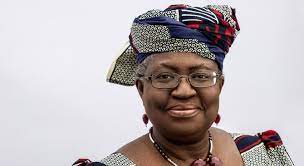Economists at the Centre for the Study of Economies of Africa (CSEA), a leading Afro-focused economic research consulting firm, have canvassed the need for the fiscal, monetary and economic planning authorities in Nigeria to synergize their policies as a strategic option of achieving a stable exchange rate for the Naira in the foreign exchange (FX) markets.
The researchers, in the firm’s just published ‘Nigeria Economic Update Issue 40’ circulated to our correspondent noted that the World Bank reported that the Nigerian currency had depreciated by almost 40% since the beginning of 2023 just like other African countries’ currencies’ which although depreciated at a low rate.
They listed the top five worst-performing currencies based on the World Bank’s findings as Nigeria (40% at official exchange rate), South Sudan (33%), Burundi (27%), the Democratic Republic of the Congo (18%), and Kenya (16%).
The CSEA experts recalled that as of January 2023, the official exchange of the Naira stood at N450/$1 and stabilised N462/$1 on May 31, 2023, while the local currency traded N747/$1 at the parallel market, suggesting that the premium on the exchange rate was 62%.
According to the economists, the wide gap between the official and parallel rates discourages exports and has several implications for the country’s ability to attract foreign investments.
They expressed concerns that efforts by the government to unify the exchange rate resulted in the official rate moving close to the parallel rate in July and a 40% depreciation since January.
The analysts noted: “While the unification efforts were done in good faith, the backlog of demand for foreign currency, which has been the reason for the existence of the parallel rate, remains. Some estimates put it at $6.5 billion, which, in turn, restores the gap between the official and parallel rate at 37% as of October 13.
“On Friday, October 13, 2023, the CBN lifted the ban on 43 items restricted from access to the official exchange rate. While the initiative might reduce pressure on the parallel rate, Nigeria’s low exports, low capital importations and high imports, result in a foreign currency imbalance”, they added.
On the best option open to the Nigerian government to stabilize the Nigerian currency’s exchange rate for foreign currencies, the researchers maintained that a situation whereby demand for foreign currency remained higher than supply was undesirable for the country “hence, there is a need for coordination between the fiscal, monetary and trade policies to achieve a stable and predictable exchange rate.”






